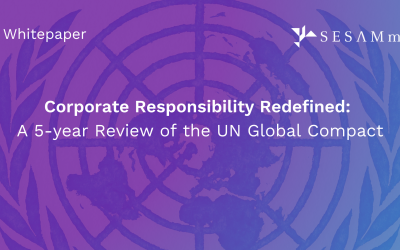Canada’s most sustainable cities announced
Globe-net Toronto-based Corporate Knights has released its second annual Sustainable Cities Ranking.
Toronto-based Corporate Knights has released its second annual Sustainable Cities Ranking.
Ottawa tops the list of Canadian cities whose practices leave the smallest environmental footprint possible while creating a healthy, thriving population.
The overall results of the Corporate Knights ranking were positive, a positive sign, notes the authors of the ranking that Canadian cities are taking the lead in addressing urban environmental issues ranging from waste reduction to climate change.
Eighteen cities were examined in 3 large, medium and small city population-based categories to ensure legitimate comparisons.
Large cities were classified of having at least 750,000 people, medium cities have at least 250,000 and small cities are have less than 250,000.
The top ranked cities for each category are as follows:
- Large: Ottawa
- Medium: Quebec City
- Small: Yellowknife
All cities were assessed on five broad equally weighted categories: Ecological Integrity, Green Mobility, Economic Security, Empowerment, and Social Well-Being.
The maximum score was 10. Publicly available information, including Statistics Canada data, as well as city surveys, was used to determine city scores.
Corporate Knights also polled each of the cities to give them the opportunity to share their own sustainability initiatives.
In ranking the cities, Corporate Knights also recommend 'opportunities to improve' which identified areas of poor performance where cities could make improvements.
Corporate Knights found most of the cities surveyed have programs in place to reduce their overall footprint both from a corporate and from a community perspective.
Most have, or are in the process of implementing, sustainability plans and almost all have targets in place to reduce GHG emissions. In every city surveyed sustainability staff are employed.
"I was pleased to discover that even with relatively small budgets and fewer resources, smaller Canadian cities are really making sustainability a priority," says Melissa Shin, associate editor and researcher for the Sustainable Cities Ranking.
"In some cases, they outperformed their larger peers."
Large Cities: Ottawa
The corporation of the City of Ottawa (7.70) met its GHG emission reduction target of 20 per cent below 1990 levels by 2007, achieving a 24 per cent reduction in 2004. Ottawa had the highest overall score of all the cities and had the highest Empowerment score of all cities. A large part of the success of Ottawa was in the Social Well-Being category. The city had the highest voter turnout of 54% and the lowest violent crime rate of all cities.Despite its excellent GHG reduction progress, Ottawa's Ecological Integrity score was relatively low. According to the ranking, Ottawa could consider a public ban on insecticide as well as tax incentives for cleantech or green businesses, which combined with the city's emerging cleantech cluster and proximity to the federal government, could make Ottawa a Silicon Valley of the north.Toronto placed second with the highest Ecological Integrity score of all cities. Toronto has the lowest per capita daily water consumption and is one of only three to have a comprehensive insecticide ban. Toronto also has the largest installation in the world of solar-powered parking meters, the first urban wind turbine and uses geothermal, Deep Lake Water Cooling in over 90 buildings.Montreal, Edmonton and Calgary rounded out the top five large cities. Hamilton placed sixth.
Medium Cities: Quebec
Quebec scored high across all categories while remaining a relatively inexpensive place in which to live. Its citizens spend only 16.8 per cent of family expenditures on shelter - the lowest of all medium-sized cities and a mere 0.05 per cent above St. John's, which had the lowest percentage.Quebec also had the highest Green Mobility score of its peers. Even though 81 per cent of the population depends on cars, the city has 15 carpool lanes to reduce congestion and the number of cars on the road.Quebec could add a green bin program to its waste management approach, and should consider augmenting its ambitious policies to ensure 100 per cent of all new municipally built buildings are LEED certified, by offering developer incentives to pursue the same path for the rest of the city's new buildings.Halifax placed second out of medium sized cities due to recent investments in geothermal energy and energy efficiency. The City of Vancouver (as opposed to Metro Vancouver) placed third, being the only city in Canada to have an energy efficiency bylaw.Winnipeg, Manitoba and Mississauga, Ontario placed fourth and fifth.
Small Cities: Yellowknife
Yellowknife received recognition for its Smart Growth Redevelopment Plan, which promotes compact development, integrated land uses, quality of life, economic revitalization, and environmental protection.The city has dedicated $500,000 towards a Community Energy Plan, which will reduce GHGs; $300,000 towards a geothermal feasibility study to determine how to extract heat from an abandoned gold mine; and $175,000 in 2007 towards Smart Growth Initiatives; and $150,000 in 2007 towards conservation, with a further $150,000 allocated for 2008.The Yellowknife City Council could improve its ethnic diversity score, as at present no members of Council are visible minorities.Saskatoon placed second with its year-round farmer's market and the second-highest employment participation rate and the second highest Economic Security score of all cities.The remaining small cities ranking from third to seventh were: Iqaluit, Whitehorse, Saint John, St. John's and Charlottetown.The full results of the Ranking, including the surveys completed by each city, are available on the Corporate Knights website.
This article is reproduced with kind permission of The GLOBE Foundation of Canada.
It was originally published in GLOBE-Net, the On-line Guide to the Business of the Environment published by the GLOBE Foundation.
Click here for more news.


_400_250_s_c1.png)



